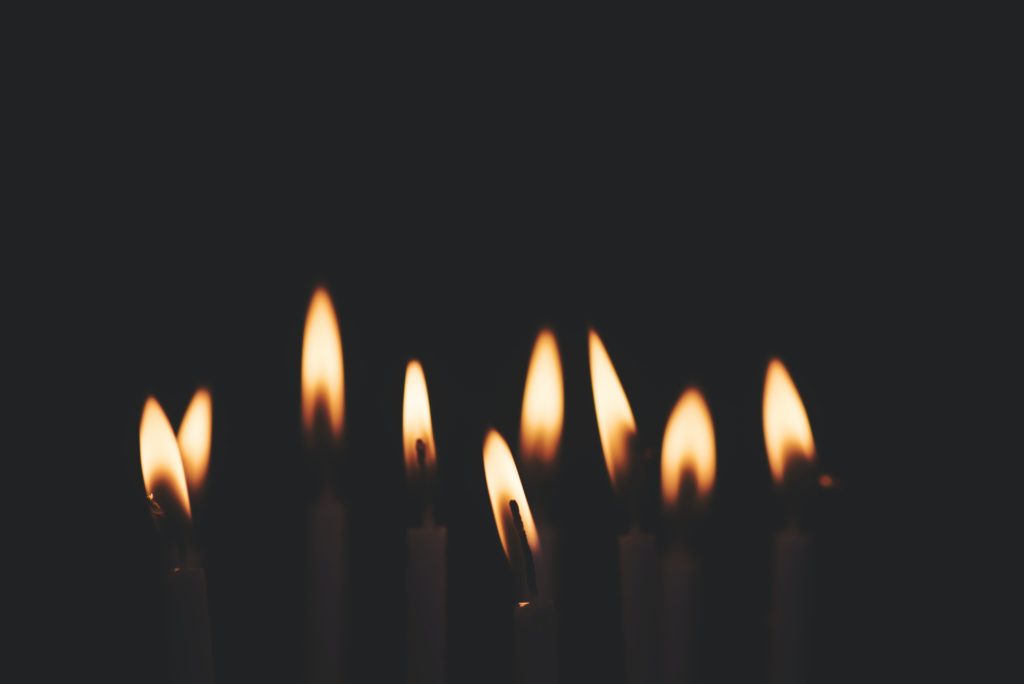Hanukah has a bifurcated history. It’s a story of the Maccabean rebellion against the Jewish people’s then-Greek overlords, and at the same time, an apocryphal tale about a cruse of oil that lasted for eight days.
But Hanukah is also a warning for anyone looking at Israel today. Because behind the whole “noble Maccabees fighting the evil Seleucid Greeks” narrative is a much darker story – that of internecine, intra-Jewish fighting over the religious nature of this nascent nation.
And while it initially seemed to end well – the Maccabees defeated the Seleucids, ushering in 100 years of Hasmonean independence – the leadership in Israel quickly became deeply corrupt, setting up the ultimate defeat and expulsion of the Jews from the land of Israel by the Romans.
Are the same processes starting again now?
We like to imagine that the state of Israel in 2022 will be permanent and here forever. But that’s not what Jewish history has shown. Rather, our periods of true autonomy were relatively short.
Moreover, there appears to be something about those who opt for leadership in general – and Jewish leadership in particular – that leads to extremism.
The similarities between then and now are simply too striking to ignore.
The Maccabees wanted Torah and Jewish Law to rule the land. Today?
“We would all like the state to act according to the Torah and halacha,” chairman of the Religious Zionist party Bezalel Smotrich said in 2019, before adding sheepishly that, “There are other people who think differently, and we need to get along with them.”
But now, drunk with political power, Smotrich has returned to his incendiary ways. Referring to his incoming role as finance minister, he told the haredi (ultra-Orthodox) weekly magazine Mishpacha, “If we follow the Torah, we’ll be rewarded with financial abundance and a great blessing.”
Meanwhile, Avi Maoz, head of the horrendously homophobic Noam party, who incoming Prime Minister Benjamin (“Bibi”) Netanyahu plans to put in charge of both “Jewish identity” and extracurricular programming in schools, stated that “Anyone who tries to harm real Judaism is the darkness. Anyone who tries to create a new so-called liberal religion is the darkness.”
What a lovely message of light for Hanukah.
Then there are the haredim, who have never shied away from hurling invective on any politician or pundit who demands they provide more secular education for their underemployed masses. One of their coalition demands was that all mixed gender prayer at the Western Wall – including in the small egalitarian section – be nixed.
This comes on the heels of United Torah Judaism’s new leader, Rabbi Yitzhak Goldknopf declaring, in the run up to the elections, that he “never saw English and mathematics actually advance the country economically.” This while Goldknopf was expressing interest at the time in running the finance ministry.
The opposition to these inflammatory statements has come fierce and fast.
— Outgoing Prime Minister Yair Lapid’s Yesh Atid party declared it would open a “hotline” for parents to report if schools are teaching hateful, intolerant material.
— Over 50 municipalities have declared they will not comply with Maoz’s policies.
— National Unity MK Gadi Eisenkot called for “a million people” to take to the streets in protest.
In a panic, Bibi has been telling journalists – primarily overseas – that Israel is not going to be governed by Talmudic law. His Diaspora interlocutors are desperate to believe in this highly improbable alchemy.
That message hasn’t gotten through to Smotrich, Maoz and Goldknopf, apparently, who, at least so far, are plowing ahead with their attempts to impose a fundamentalist ideology on a resistant public.
How did that work out last time?
When the pro-Athens High Priest Menelaus was reinstated in Jerusalem following Greek Emperor Antiochus’s missteps in failing to capture Egypt, Menelaus embarked on an aggressive operation to further Hellenize the Jews.
That prompted Mattathias of Modi’in and his five sons to launch a guerrilla campaign – not as much against the Seleucids as their fellow Hellenized Jews.
Menelaus, in response, summoned the Greek armies to Judea. The Maccabees managed to beat back multiple waves of Greek fighters until, in 167 BCE, Parthia attacked the Seleucid Empire. Antiochus was forced to refocus his troops and the Jews had an opening to retake Jerusalem, in 164 BCE.
It took another 24 years before an independent Judea rose again, but it managed to stay free from foreign rule from 140 to 37 BCE.
It didn’t take long, though, before the Hasmoneans shamelessly grabbed power and combined the priesthood with kingship, becoming ever more corrupt and oppressive. By the time Herod rose to power; Jewish sovereignty was over. Soon, the Jews would be exiled entirely.
The uncomfortable question we must ask this Hanukah: Can it happen again?
Will the theocratic extremism of Smotrich, Maoz and Goldknopf result in another civil war between the Jews?
Will our enemies take advantage of our infighting?
Will our allies abandon us when the Jerusalem Pride Parade is canceled, or large swaths of the West Bank are annexed by those who believe it is “God-given?” (Note that I haven’t even mentioned Itamar Ben-Gvir here, since his main agenda, for the moment, is more about policing than religious coercion.)
Or will the rapidly shrinking population of Jews in Israel who still support pluralism and democracy simply give up and leave?
Theodor Herzl wrote in his book The Jewish State, “Will we allow the priests of our religion to govern us? No! While faith is something that unites us, we must seek out – with force – wisdom and sciences.”
We may be too late. And this time, I’m afraid, not even a miracle of oil will save us.
I first compared Hanukah past and present at The Jerusalem Post.
Photo by Gaelle Marcel on Unsplash






